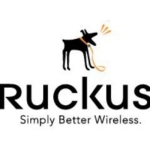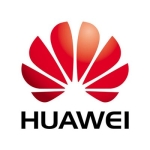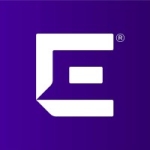What is our primary use case?
We installed approximately 20 Cisco Meraki Wireless LAN in our headquarters and we have a remote site, a satellite office, which has about seven more installed.
Cisco Meraki Wireless LAN is an on-premise solution, but it uses the Meraki cloud portal. We have to register the WAP with the cloud.
In our Satellite office, we have approximately 30 users and guests. We have a guest network that runs through the Cisco Meraki Wireless LAN and a corporate network that runs through it. Our headquarters network hasn't been used as much, everybody's working remotely over the last year and a half because of COVID. Prior to the pandemic, we would have up to 300 people in the headquarters and guests.
How has it helped my organization?
Cisco Meraki Wireless LAN has helped our organization because we are able to be connected to the network while moving around. For example, I am able to take a presentation from one conference room and walk across the building and present it in another conference room without losing connection. This is pretty good for us.
What is most valuable?
The most valuable features in Cisco Meraki Wireless LAN are that we were able to see all the registered users for each particular WAP, which is a big help. The roaming allows us to have continuous wireless throughout the building. The signal can carry over from one WAP to another. Which is probably the most important feature.
What needs improvement?
We're are not fully utilizing the features of Cisco Meraki Wireless LAN to know a more in-depth analysis of what areas need to be improved. However, the security could improve. It would be a benefit to be able to lock out particular clients that are trying to connect from outside the building.
In an upcoming release, it would be a benefit to have a security dashboard that could show additional information. In addition to our Meraki solution, we have a Cisco product called ISE, Identification Security Engine, and we can detect non-compliant or non-corporate addresses from our network. Instead of using a second product, the Cisco Meraki Wireless LAN should be able to isolate the non-specified MAC addresses into the network.
Buyer's Guide
Cisco Meraki Wireless LAN
January 2026
Learn what your peers think about Cisco Meraki Wireless LAN. Get advice and tips from experienced pros sharing their opinions. Updated: January 2026.
881,036 professionals have used our research since 2012.
For how long have I used the solution?
I have been using Cisco Meraki Wireless LAN for approximately three and a half years.
What do I think about the stability of the solution?
The stability of the network is very good. I think we had oversaturated our HQ environment, where we had too many devices in a particular location. We actually had to change some of our configurations because it was causing some connectivity competition between WAPs trying to connect. We had to remove a WAP to allow better connectivity.
What do I think about the scalability of the solution?
Cisco Meraki Wireless LAN is scalable. If we needed to expand, it's easy to add another WAP for a new location.
As we come back into the office, in January, we'll start out with approximately 100 users. We're going into a hybrid mode and we will not have as many users as we did, prior to COVID. We had upwards of 300 people connecting and that's mostly everybody with their mobiles or laptops that come into the office. At our highest, it is approximately 300 users but starting in January, we'll probably have approximately 100 to 200.
We do not have plans to expand our usage at this time. However, if we open up a new office then we will most likely expand usage.
How are customer service and support?
We have contacted Cisco's technical support a couple of times and they're very responsive. I would give them a thumbs up.
Which solution did I use previously and why did I switch?
We used the previous version of Meraki at our old headquarters. The only reason we switched was that we wanted a newer product in a new office. In terms of our office move, we decided to buy all new equipment and that's the only reason we switched.
How was the initial setup?
The installation is straightforward. The wireless portion of the installation took approximately one week. This included mounting and bringing activating the network.
What about the implementation team?
We used a consulting group for the completion of our network completion in our building. I followed along with them, it wasn't too complex. My experience with the constant was very good.
We have three system administrators, one being myself, and my two coworkers. We're all capable of managing the Meraki environment.
What's my experience with pricing, setup cost, and licensing?
We are on a SmartNet contract. All of our Cisco products are licensed under one contract. I do not think there are any additional costs.
Which other solutions did I evaluate?
We did not evaluate any other options when we switched over to the newer version of Cisco Meraki Wireless LAN.
What other advice do I have?
My advice to other thinking about implementing this solution is to look at other products that are out there. I don't want to say stuck, but we are using all-Cisco products at the time and there are probably products that may be less expensive that could do the same job. We're in contract with Cisco and this is why we went with the newer version of Cisco Meraki Wireless LAN when we needed a new solution. If anyone was looking for a wireless solution, look at different manufacturers.
I never rate anything at 10 because there's always room for improvement.
I rate Cisco Meraki Wireless LAN an eight out of ten.
Which deployment model are you using for this solution?
On-premises
Disclosure: My company does not have a business relationship with this vendor other than being a customer.


















